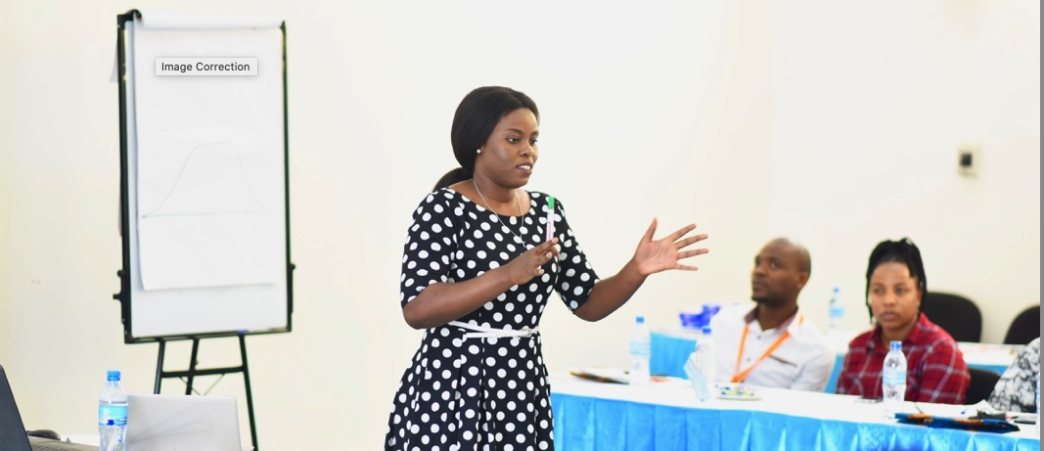
Training Amid the Pandemic: Instilling Knowledge at a Distance
As organizations around the world postpone and cancel in-person events in response to the pandemic, we have seen an accelerated adoption of both remote working and digital learning. Similarly, this year we took the annual Tanzania natural resource governance capacity-building program run by NRGI and REPOA online; delivering the course on the online platform, Zoom.
It was a steep learning curve. Our experience shows that successful online training requires meticulous preparation and teamwork – from preparation and the selection of participants, through to delivery.
We’re pleased to have received good feedback. One participant said of the course:
“The virtual workshop has enlightened me on how work can be done remotely and still be efficient. Throughout the training despite it being virtual, still all participants where active. As a consultant and researcher, this will help me adopt this as a new data collection technique. Amid this pandemic this will be a useful tool in conducting focus group discussions and consultative meetings”
Below, we outline what we learned about delivering effective online training, which we hope is useful for other organizations, trainers, facilitators and capacity development managers.
For the past three years, the workshop has been an interactive, in-person, week-long training on how to best harness natural resources to support Tanzania’s development goals, attended by practitioners from government, civil society and the private sector. The course focuses on building the 30 participants’ understanding of the principles and challenges of good resource governance, and the policy options and tools needed for sustainable and inclusive development.
Prior to the coronavirus pandemic, NRGI and REPOA delivered training in person in Tanzania.
Tips for developing training online
1. Prepare well
- Set clear objectives and desired learning outcomes. The workshop structure and modules should ensure that the same objectives can be achieved through virtual learning as far as possible.
- Ensure engagement of support staff needed early on: in particular, the IT team. Give your coordinating team freedom to innovate and try different ways of delivering the course
- Select the most appropriate platform, considering aspects like bandwidth availability or required functionalities, and ensure your coordination and support teams are familiar with the tool.
- Gauge facilitators’ comfort in participating in virtual trainings and let them know they will be supported before and during their sessions.
- Ensure backup facilitators to accommodate eleventh-hour changes.
- Do not change your criteria for participant selection to make up numbers, even if you are concerned the uptake for online learning will not be as great.
2. Run a trial session, and have a plan B
- In a mock session, run through workshop etiquette, such as raising of virtual hands before speaking, utilizing the chat room for questions and queries, muting microphones, and using video well. Ensure each participant sets their log-on name to their full name.
- Test the audio, video, poll function, breakaway rooms, lighting and camera placement of presenters. Give ample time to fix any issues that may arise.
- Share relevant contact details of support staff and address other barriers to online participation. In our case, we paid for mobile data credit for our participants.
- Create a WhatsApp group with all participants and coordinators to ensure that coordinators and participants can easily communicate in case any issues arise e.g participants having problems logging onto the online platform.
- Request that all facilitators share their presentations in advance. These serve first as a backup in case they cannot share their screen, and second for audiovisual testing, in case part of their presentation is not legible.
3. Allow for flexible learning, but be strict on time
- Rather than spending time introducing the facilitator and topic, use polls to introduce the topic and gauge the participants’ knowledge and understanding.
- Set the tone of time management from the outset and always follow the stipulated time to maintain participants’ active attention.
- In adult learning, the facilitator should guide the teaching, but an important part of the learning happens within participant interaction. So keep the video option on participants’ computers active to create a community feel - using polls and breakout rooms and other functions in a meaningful way.
- Make use of relevant online resources and virtual learning tools that the participants can utilize in their own time and at their own pace. In our case, we used NRGI’s online simulation, Petronia, and designed practical exercises related to it.
4. Be creative
- Use polls, breakaway session, videos, audios, and practical exercises to keep participants engaged and energized.
- Offer meaningful alternatives to pre-pandemic activities such as field visits. This year we had a session in which former alumni shared their experiences. It was a popular session, as the participants (and coordinators!) learned that the course had served to pique alumnae interest in different aspects of resource governance, encouraging them to explore new areas of interest.
5. Evaluate
- Create as many avenues as possible for assessing the content and delivery of the training program throughout the training - such as polls, recap sessions, quizzes, google evaluation forms, and follow-up telephone interviews.
Participant interaction and engagement online exceeded our expectations. Beyond the platforms we had created, participants met and discussed issues assigned to their groups. At all times, all registered participants were online and often asked relevant questions. Although a very different medium, when harnessed in the right way, we found convening an online training to be a success for all involved.
Sophia Rwegellera is an Africa senior officer at NRGI. Theonestina Kassiga is NRGI’s Tanzania program assistant. Blandina Kilama is a senior researcher at REPOA. Lulu Olang is a REPOA assistant researcher.
Authors

Sophia Rwegellera
Tanzania Senior Officer

Theonestina Kassiga
Program Associate

Blandina Kilama
Senior researcher at REPOA

Lulu Olang
REPOA Assistant Researcher
